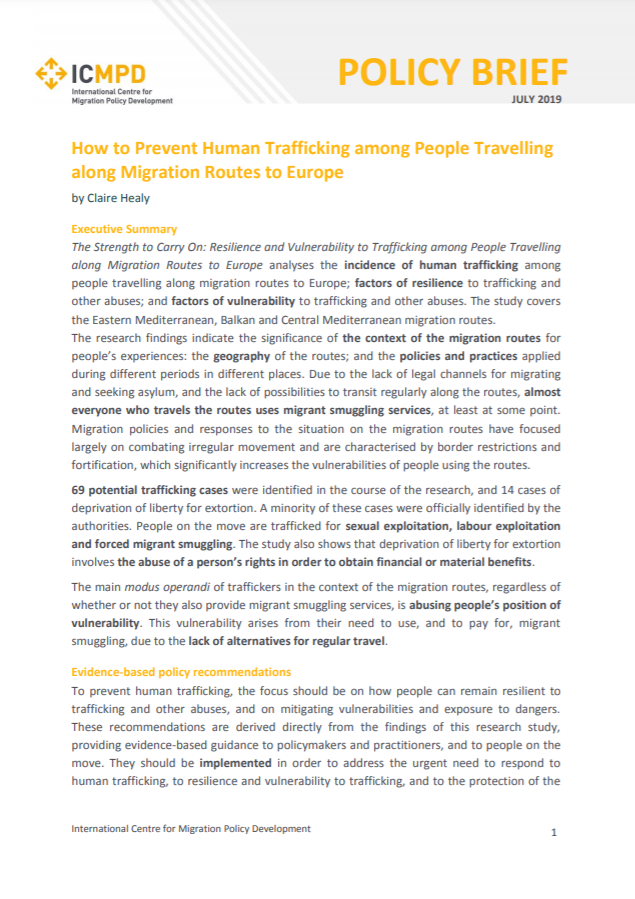
The Strength to Carry On: Resilience and Vulnerability to Trafficking among People Travelling along Migration Routes to Europe analyses the incidence of human trafficking among people travelling along migration routes to Europe; factors of resilience to trafficking and other abuses; and factors of vulnerability to trafficking and other abuses. The study covers the Eastern Mediterranean, Balkan and Central Mediterranean migration routes.The research findings indicate the significance of the context of the migration routes for people’s experiences: the geography of the routes; and the policies and practices applied during different periods in different places. Due to the lack of legal channels for migrating and seeking asylum, and the lack of possibilities to transit regularly along the routes, almost
everyone who travels the routes uses migrant smuggling services, at least at some point.
Migration policies and responses to the situation on the migration routes have focused largely on combating irregular movement and are characterised by border restrictions and fortification, which significantly increases the vulnerabilities of people using the routes. 69 potential trafficking cases were identified in the course of the research, and 14 cases of deprivation of liberty for extortion. A minority of these cases were officially identified by the authorities. People on the move are trafficked for sexual exploitation, labour exploitation and forced migrant smuggling. The study also shows that deprivation of liberty for extortion involves the abuse of a person’s rights in order to obtain financial or material benefits.
The main modus operandi of traffickers in the context of the migration routes, regardless of whether or not they also provide migrant smuggling services, is abusing people’s position of vulnerability. This vulnerability arises from their need to use, and to pay for, migrant smuggling, due to the lack of alternatives for regular travel.
Country
Worldwide
Region
Worldwide
Year
2019
Category